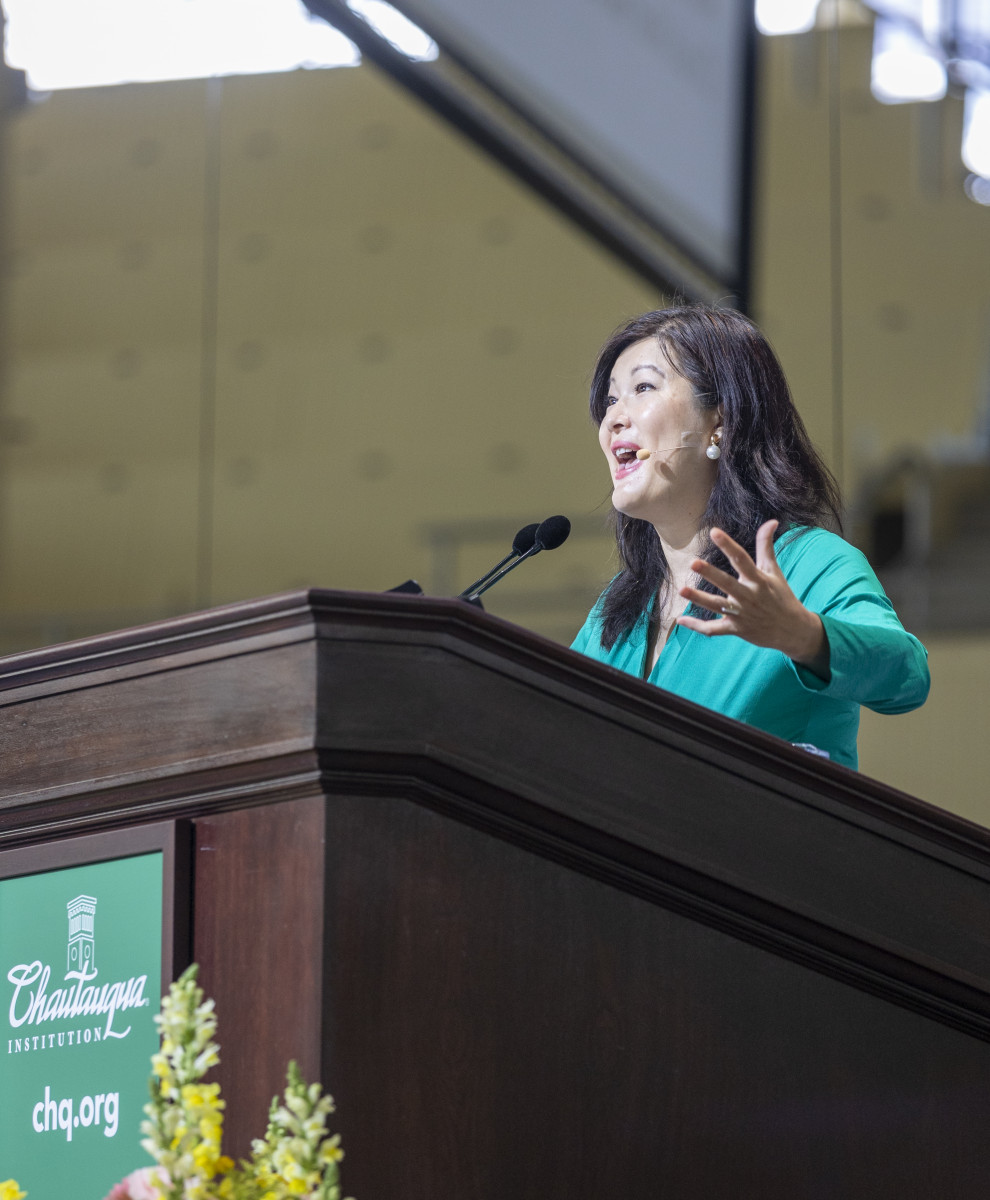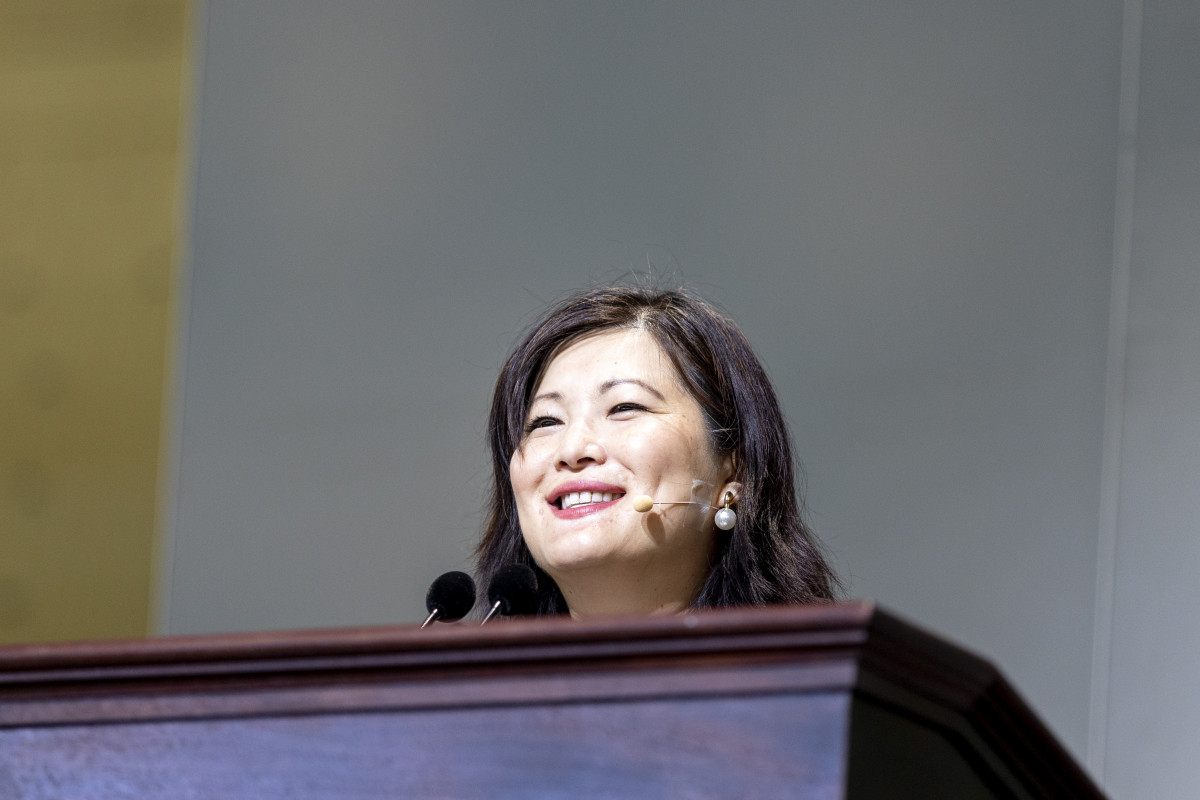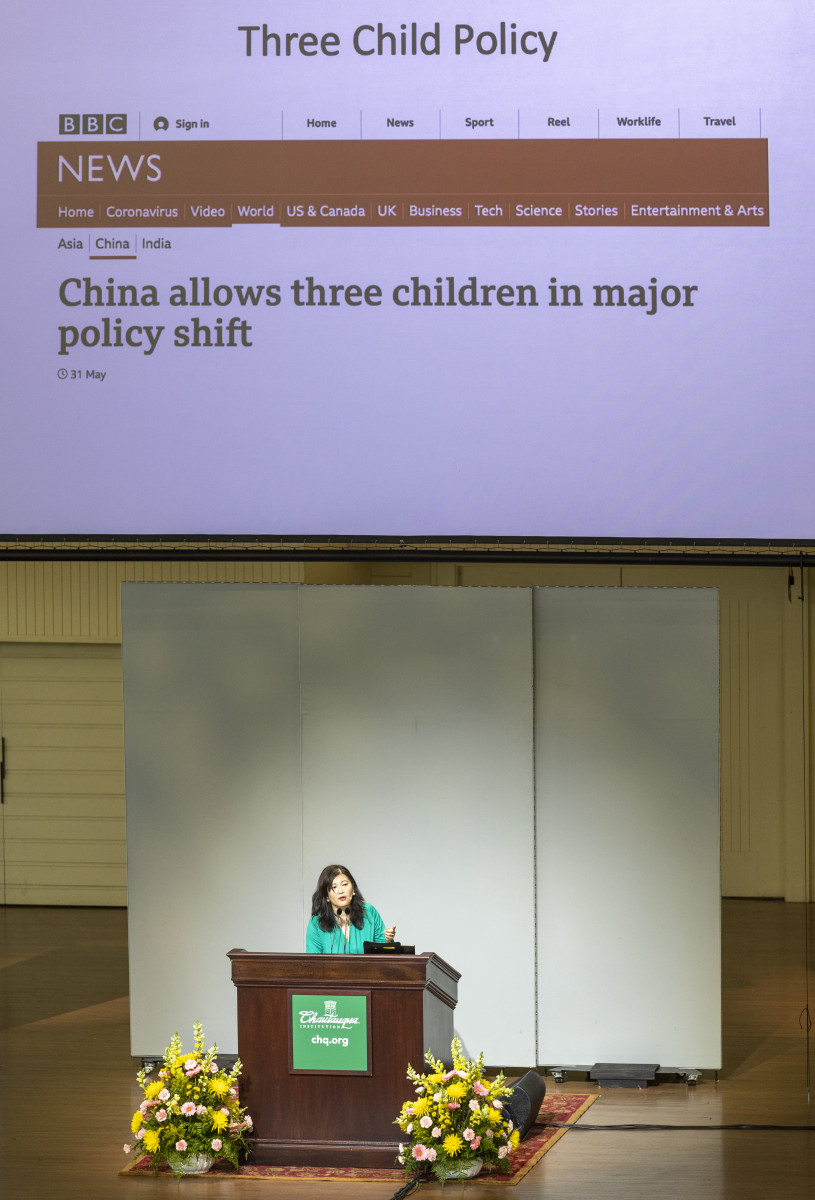NICK DANLAG – STAFF WRITER
‘Too Male’
China has 30 million bachelors. That’s more than the population of California.
The one-child policy in China, designed to control population growth in the mid-20th century, was a law that mandated families could only have one baby. In a patriarchal society, the law led many Chinese to choose to only keep male babies, often terminating pregnancies or abandoning baby girls in favor of trying for a boy.
As Mei Fong — a Pulitzer Prize-winning journalist currently an executive at Human Rights Watch — said, the prevailing opinion in China was and is that “raising a daughter is like watering someone else’s flowers, because they will marry into another family.”
In her morning lecture on Tuesday, June 29 in the Amphitheater, Fong told many stories of how the policy has affected individual people. One man, from a village with 30 adult men and no single women, helped pay and arrange for 30 women to marry the community’s bachelors. Then one day, all the women simply left.
“When I first heard the story, I thought to myself, ‘Wow, good for these women.’ I had these images of brides racing across the paddy fields with their veils flowing in the wind,” Fong said. “The man told me that he couldn’t blame them for this because he knew that they were under a lot of pressure. I thought it was very forgiving of him. This is the problem for many men: they are stuck in a problem not of their own making.”
This man, and the other single sons of his generation, are also feeling the effects of the policy. Because China does not have a strong social security program, a young man will often have to provide for his two parents and four grandparents — essentially becoming six people’s retirement fund.
As part of her lecture, “Long-Term Consequences of China’s One-Child Policy,” Fong explored the one-child policy and its cultural and financial impacts on China and the global community. Hers was the second installment of Week One’s Chautauqua Lecture Series theme of “China and the World: Collaboration, Competition, Confrontation?” The author of One Child: The Story of China’s Most Radical Experiment, her work has appeared in The New York Times and The Washington Post. For several years she was a staff reporter for the China bureau for The Wall Street Journal, where she was awarded the 2007 Pulitzer Prize for International Reporting.
‘Too Old’
The one-child policy was created in the 1980s, Fong said, by men who worked in the military.
“These men were primarily, themselves, scientists who envisioned women as machines,” Fong said. “What these men thought was that, ‘Women’s fertility — that is something you can push out and push in like a switch.’”
These men also thought that when they officially lifted the policy nationwide in 2015, Chinese citizens would rush to have multiple children again. Fong said this isn’t that case.
“This is a leadership that has 30-plus years telling you, relentlessly, one child is best,” Fong said. “If you do not believe the power of messaging changes you, then the billion-dollar advertising industry would not exist.”
Despite the two-child policy being in effect for years, and the recent approval of the three-child policy that was passed on May 31, China still has a very elderly population — 40% of the world’s Parkinson’s patients are Chinese. Fong said the retirees of China would make up the world’s third-most populous country.
People outside of China also believe in the policy. After reporting on it, Fong said, she received notes from people telling her that the whole world should have a one-child policy because of overpopulation.
“The question I ask is: Are you okay with if someone takes away your mother, your sister, your wife for forced abortion or sterilization?” Fong said.
‘Too Few’
No one wants to be “shidu parents.” This is a Chinese phrase for a couple whose child has died. While a child’s death is a tragedy for anyone, no matter the country, under the one-child policy in China, this also means no one will financially provide for the parents when they are no longer able to work. Fong said this is why the phrase shidu parent has extra weight to it.
In 2008, Fong reported on the massive earthquake in Sichuan, China. She interviewed a man whose daughter was crushed to death. The man was 50 and his wife was 45.
Neighbors avoided them afterwards, Fong said, because they did not want the financial responsibility of taking care of them. Just weeks after his daughter’s death, the man went to the hospital to reverse his vasectomy in order to try to have another child.
Having working-age children is integral for families like the one Fong interviewed, but also for the economy. With China’s economy still growing rapidly, the country’s youthful population can’t keep up with job demand.
Fong said that in the 1990s, right when the Chinese economy first started growing at unprecedented rates, the country had high numbers of young adults and a low number of retirees. This was the perfect equation for the economy at the time. As those workers age, however, the next generation is not large enough to effectively financially support them in the customary way.
The United States also has decreased population growth. Fong said almost every developed, wealthy country has this problem. The United States, in particular, supplements its population with immigration, but China has never done this, and Fong said the Chinese government has no large plans to do so.
Shannon Rozner, the Institution’s senior vice president of community relations and general counsel, started the Q-and-A by asking Fong why people at first saw the one-child policy as positive.
Fong said that lawmakers in the 1980s felt the one-child policy was necessary in order for China to climb out of poverty — the government decided to limit population so that resources would go farther.
Other countries in Asia have approached the problem of overpopulation far less drastically. In Thailand, she said the government encourages women to go to college, have a career and start families later in life.
She also said that before implementing the one-child policy, China had a similar movement called the “Later, Longer, Fewer” campaign. The government encouraged its citizens to marry later in life, wait longer before having children and to end up with fewer children.
“That period was the greatest fertility drop that China experienced,” Fong said. “Average households went from having six children to three children.”
Fong said that some people argue that if China stuck with the “Later, Longer, Fewer” campaign, the country would be seeing fewer negative effects — such as forced abortions, tragedies within the adoption system and burden on a singular male of the family — and still have many positives, such as a decreased population and fewer strains on government resources.
Rozner then asked if the huge population of unmarried men has opened Chinese culture to nontraditional families, such as LGBTQ+ or single-parent households.
“That has not been the case at all,” Fong said. “By and large, the one-child policy is also very much linked to the issue of control of the kinds of people they want to have.”







